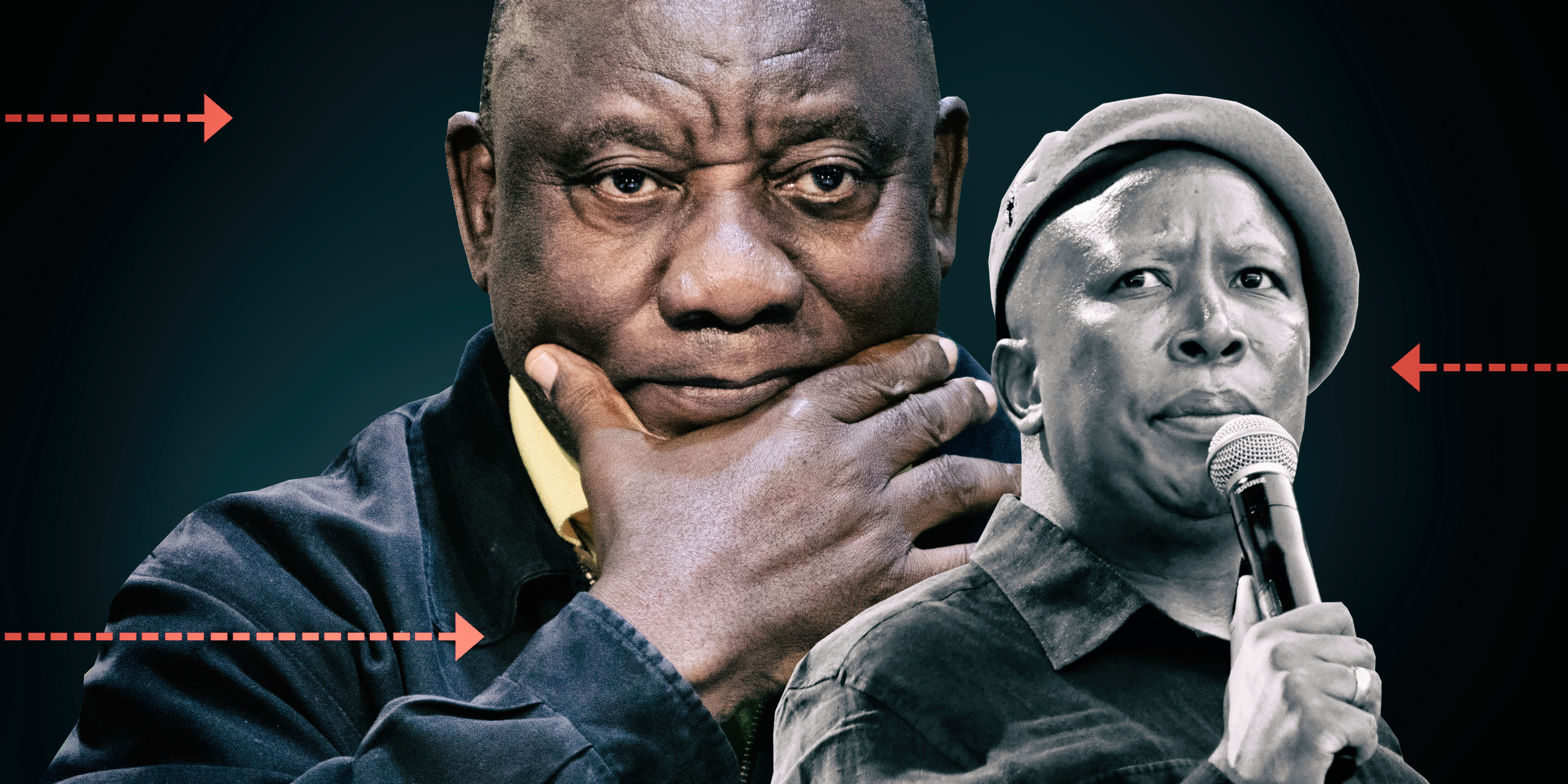President Cyril Ramaphosa strongly reprimanded EFF leader Julius Malema for his utterances during the Opening of Parliament Address debate on Friday, 19 July 2024, following the President’s speech the day before.
/file/dailymaverick/wp-content/uploads/2024/07/OPA-reply-debate-3919.jpg)
Ramaphosa was speaking during his response to the debate during a joint sitting of Parliament in Cape Town on Monday.
Ramaphosa said Malema had launched a personal attack on him instead of focusing on the work which the government had to carry out in next five years.
Ramaphosa accused Malema of playing the person instead of the ball and highlighted that the leader of the red berets had gone as far as insulting his father during a previous debate.
He then requested a meeting with Malema to discuss apartheid-era politics, which Ramaphosa believed “confuses” Malema.
“You seem to be in the dark. I will be doing this so whenever you stand up and address us, it will be about something that gives us direction.”
The President then hit back at Malema for questioning his struggle credentials as well his history with the National Union of Mineworkers (NUM).
Ramaphosa mentioned the likes of Gwede Mantashe and Mondli Gungubele as people who could vouch for his work in the trade union. The President is largely credited for the formation of the NUM and was the union’s first general secretary.
On Friday during the debate, Malema accused the President of being an apartheid collaborator.
He criticised the government of national unity (GNU), saying that while it was the brainchild of the ANC, the DA held veto power among partners who were part of the pact.
“We grew up being told some of you were collaborators but we gave you the benefit of the doubt. It was said in this house that you personally wrote a letter to the apartheid police accusing your fellow comrades of planting communist ideas in your head and we refused to believe that story.
“It now makes sense that despite the apartheid regime being so oppressive against all freedom fighters, you peacefully and uninterruptedly attended university and you were given your first job by the ambassadors of apartheid capitalism and colonialism,” Malema said.
Geopolitics
Ramaphosa also assured Malema of South Africa’s role on the continent and across the world as he mentioned the African Continental Free Trade Area (AfCFTA) and other instruments of continental economic integration.
“As Minister [Parks] Tau said, the AfCFTA, is a game-changing initiative to leverage one of the fastest-growing consumer markets in the world, a growing market that is young, tech-savvy, highly educated and conscientious about implementing actionable Pan-Africanism for the twenty-first century,” he said.
Ramaphosa mentioned the country’s commitment towards “silencing the guns” on the continent and to playing its part in peacekeeping and peacebuilding efforts in Africa.
“We have deployed members of the South African National Defence Force to support UN, AU and SADC peacekeeping missions in several parts of the continent,” he said.
South Africa is also in solidarity with the peoples of Western Sahara and Palestine who, according to the President, “are still being denied their right to self-determination”.
“On Friday last week, as members of this House were debating, the International Court of Justice issued an advisory opinion on the State of Israel’s continued occupation of Palestinian land and the construction of settlements in the West Bank, ruling that this was illegal under international law. The court said this should come to an end as rapidly as possible,” the President said.
Read more: ICJ advisory opinion that Israel’s continued presence in occupied Palestine is unlawful welcomed
In addition to this, South Africa had been pursuing reform of the institutions of global governance, including the UN Security Council, and for the institutions to better reflect and give a greater voice to developing countries.
Nation-building
Responding to comments from Sport, Arts and Culture Minister Gayton McKenzie, Ramaphosa said he believed it was important that the country built a united nation.
“Not only do we need to have frank and honest conversations about how race continues to define the prospects of our people, but we need to pursue policies that resolve these contradictions in our economy and society,” he said.
“Honourable Sangoni Diko was clear in saying non-racialism is fundamental to the struggle for a free and equal society. Non-racialism is not a concession. It is not an act of charity. It is something that we must continue to build so that we can achieve a South Africa that truly belongs to all who live in it,” he said. DM




 From left: ANC President Cyril Ramaphosa. (Photo: Leila Dougan) | EFF leader Julius Malema. (Photo: Gallo Images / Frennie Shivambu)
From left: ANC President Cyril Ramaphosa. (Photo: Leila Dougan) | EFF leader Julius Malema. (Photo: Gallo Images / Frennie Shivambu)